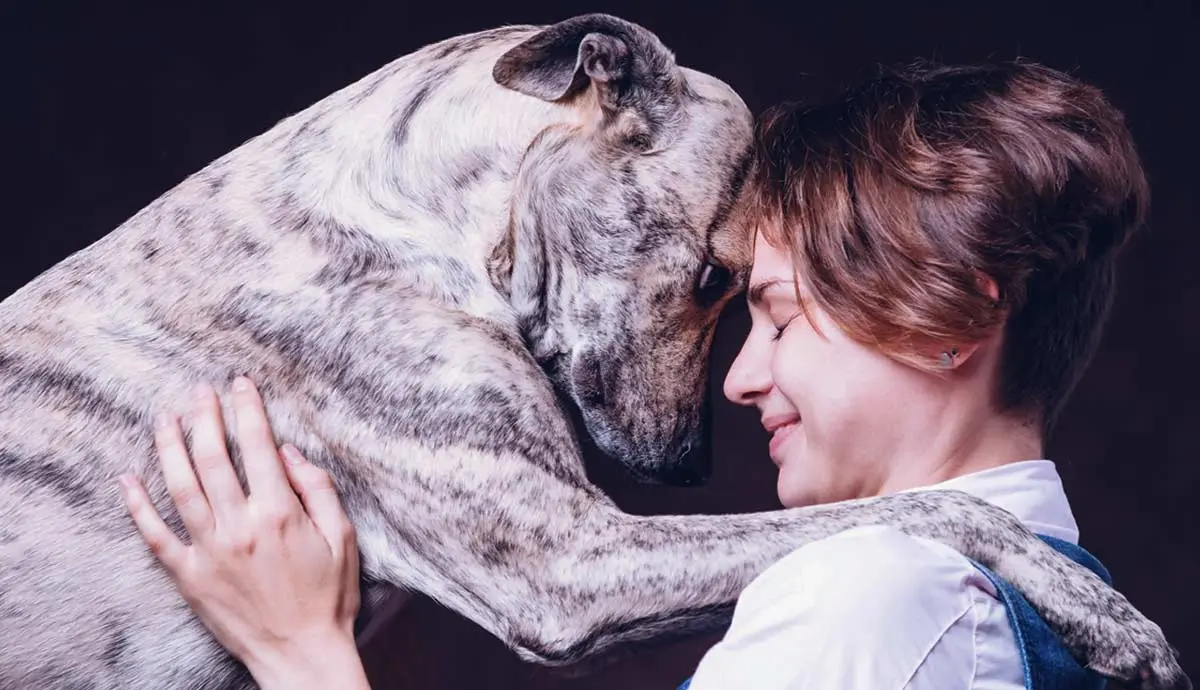When your dog places their head on you or presses their body against your legs, you wouldn’t be wrong to think it’s a sign of affection. But some dogs are insecure, fearful, and dependent. Others lean on you when they don’t feel well. What we do know is that leaning behavior is part of their language and it’s up to us to figure it out. To make it easier, our guide answers the question, “Why is my dog leaning on me?”
1. They Want to Be Close to You
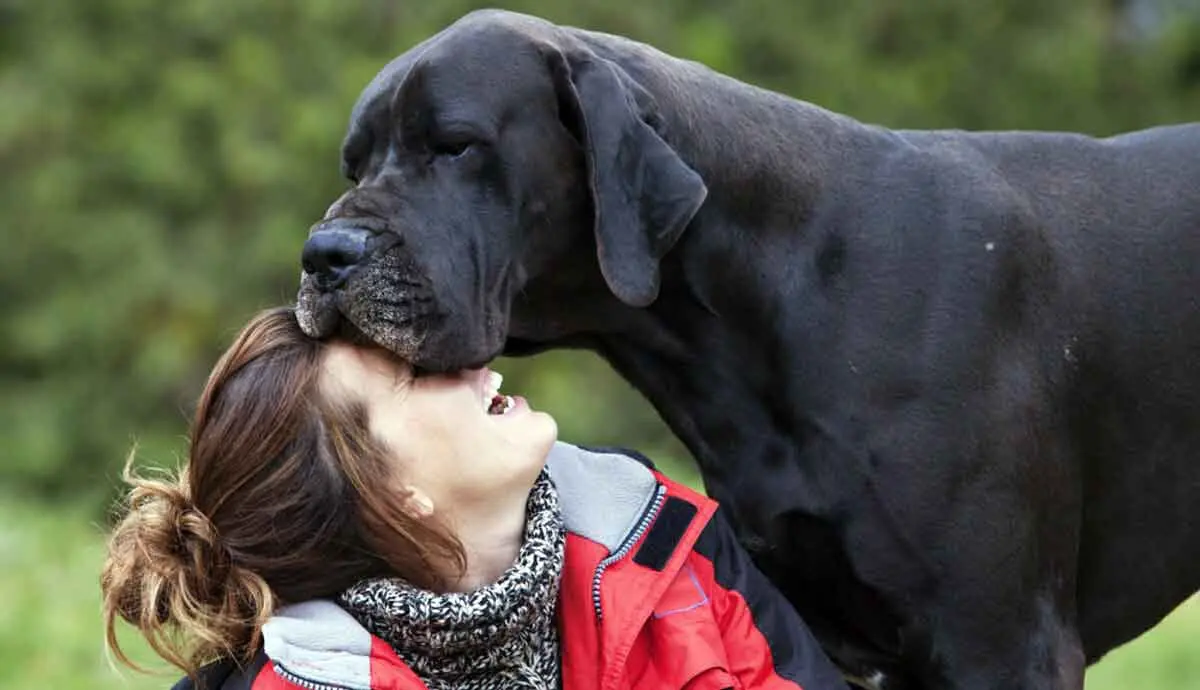
You’ll find your dog placing their body weight against you to show their love and affection. The Great Dane is one of the biggest leaners of all dog breeds, and it’s not because of their gigantic size. Having a 170 lb. dog lean against you might not be the most pleasant experience, but it’s all out of love.
You’ll find social dog breeds, such as collies, retrievers, and even pugs, enjoy placing their body weight against you. It’s just a gentle and very relaxed way of letting you know that they just want to be close to you. Dogs don’t have the same love language as people. When dogs show you love, it’s in the form of headrests on your lap and leaning on you.
2. They Could Be Showing Dominance
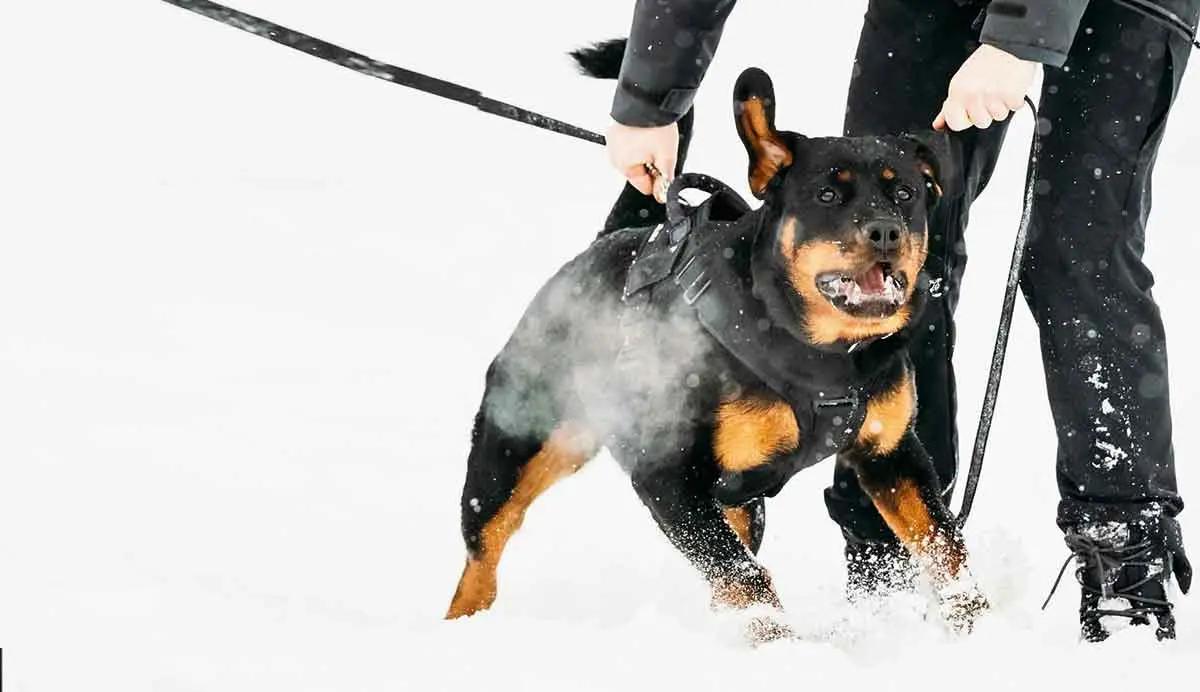
Dominance in dogs is a tricky topic of discussion. Old-school behaviorists believe that dogs can be dominant, and without strong leadership, they establish themselves as the top dog in the household. Other trainers think that dominance theory is a myth and that problematic behaviors arise from other deep-seated issues, including anxiety and stress. To better understand the answers to this debate, we have to look at general dog behavior.
If a dog leans on another pooch and tries to rest their head on the other dog’s body, this isn’t always a friendly greeting. I’ve seen this behavior in my own Boerboel. She’ll place her head and body on the other dog to get them to move out of her way. If another dog were to challenge her, this could probably end in a fight. But this behavior doesn’t only involve other dogs. Your canine companion may lean against or climb on you because they’re trying to dominate you. Another sign of dominance is when a dog leans onto your leg to steer you on a walk rather than heel. Combined with pulling and haphazard movement, you must take steps to regain control over the behavior.
3. They’re Trying to Protect You
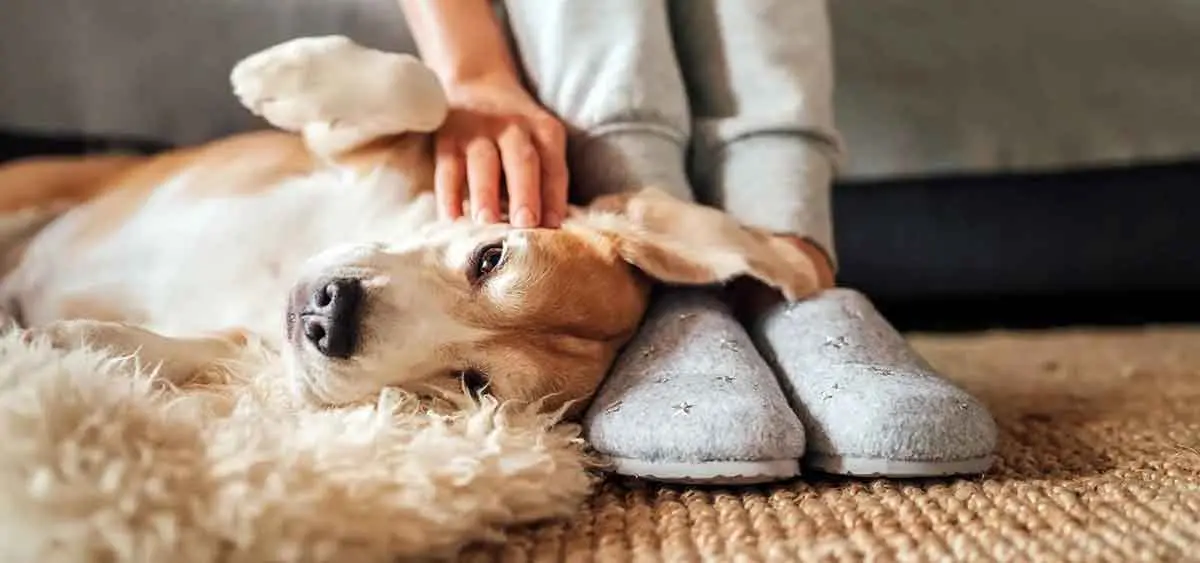
You might expect this behavior from guard dogs, but any dog that feels protective of their person will lean or lay on them. If they’re claiming you or think that you’re being threatened, they’ll stand close to you or drape themselves over you. Again, dogs such as the Great Dane and Rottweiler will sit or stand against you with a protective stance. Of course, if they aren’t trained to protect you, this isn’t a behavior that you should encourage. Without any awareness, someone might try to shake your hand or hug you, and your dog might misinterpret the situation, resulting in an attack. Always observe your pet’s behavior and correct protective body language with a firm “no!”
4. They’re Fearful and Anxious
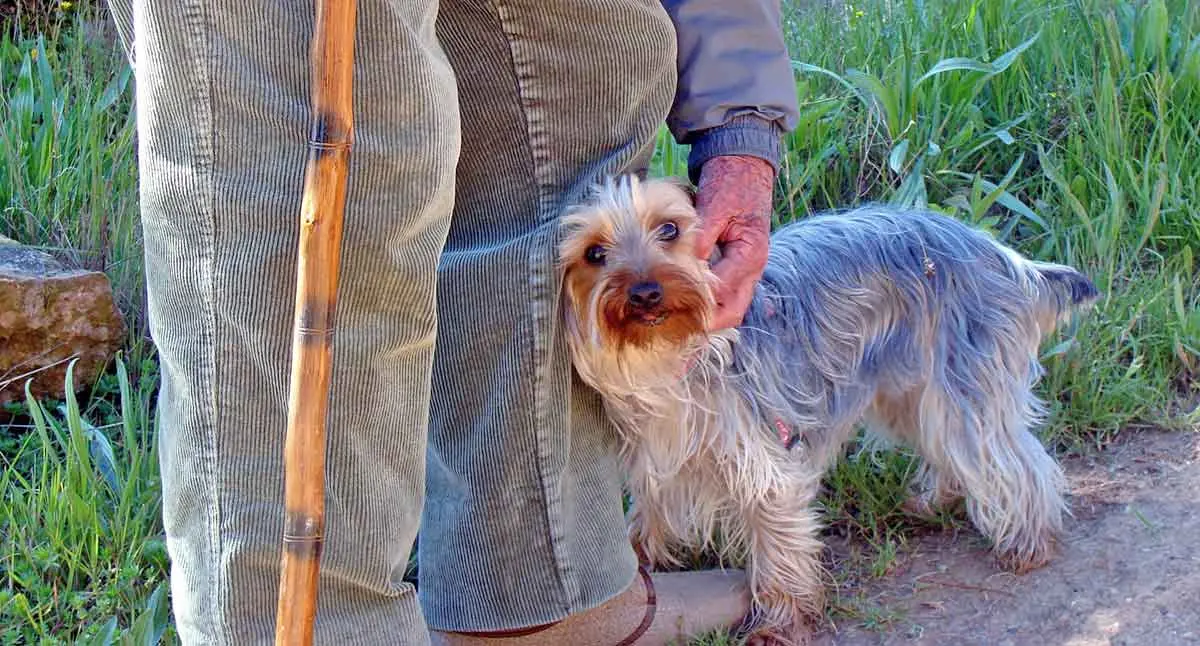
Insecure dogs that are overwhelmed and stressed will lean on you. That’s because a dog that remains close to you feels secure, but this is not a healthy behavior. It could be a sign of separation anxiety in dogs, where they’re fearful and nervous if they aren’t around you. Anxious dogs can become destructive or withdrawn in your absence. If you notice that your fur friend needs to know where you are at all times, it is important to build confident and independent behaviors.
A simple way to address insecure attachments in dogs is to have them play with toys or treats in a separate room. If they go outside on their own, don’t call them back to you, and encourage them to explore without always being in their presence. Anxious dogs do best in a calm environment with a daily routine. Regular walks, set times for meals, and independent play are simple steps that you can take to help your pet overcome their fearfulness and anxiety.
5. When is Dog Leaning a Problem?

If your dog performs the odd lean and they’re healthy, bright-eyed, and affectionate, there’s nothing to worry about. It’s probably part of their personality. But if you notice unsteadiness or any other signs of illness in addition to leaning, it requires an emergency visit to the vet. A veterinary check can rule out the possibility of poisoning, accidents, and other issues.
Dogs that lean because of fear aren’t living a balanced life. A dog that always needs to be around you, trembles when visitors arrive, or becomes distressed when you leave requires a supportive treatment plan. You don’t want to reinforce anxious behavior, so speak to your vet about therapy and ways of moving forward.
6. They Need Something from You

We think that it’s cute when a dog leans on someone, but their behavior might not be as straightforward as it seems. Some dogs will show you they love and trust you by leaning against your legs or lying across your feet. In other instances, a dog pushing against you may indicate fearfulness or discomfort.
These pack animals like to be social, but putting their bodies against you could be a sign of something more sinister. If it’s an act of affection, then all is well, but if it’s coupled with fear, aggression, and insecurity, your canine companion definitely needs help.
